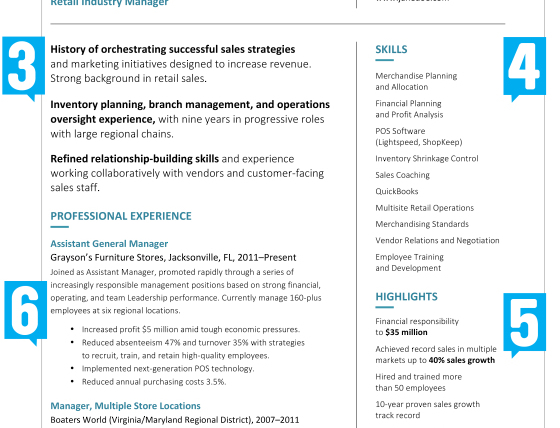Whether you’re not assertive enough, proactive enough or informed enough, you may overlook important steps when applying for internships.
Sure, we know you’re the perfect candidate for the job, but recruiters don’t—yet. And making these mistakes can keep your potential employers from ever finding out just how fabulous you are!
1. You don’t reach out to your connections
Often, though, college students get so wrapped up in their internet searches that they forget their closest resources: the people around them.
Vicki Salemi, career expert and author of Big Career in the Big City, says that collegiettes shouldn’t neglect the people they’re already connected to during their internship searches. Sometimes the people you know— such as professors, former employers or even family and friends—will know of a position that you’d never find on your own.
LinkedIn can be an excellent resource for networking with your university’s alumni and others within specific companies. If you have your own LinkedIn profile already, an easy way to find alumni at a specific company is to search your university in the LinkedIn search bar. Once you’re on your university’s page, click on the Students & Alumni tab. Then you can search a company or organization within that section to find alumni who work there.
2. You don’t open your mind to different positions
For one, keeping your options open to multiple types of internships will help you cast a wider net. More applications mean that you’ll probably hear back from more places. You don’t want to have your heart set on only two or three perfect internships and then end up not hearing back at all.
Keeping an open mind can also help you figure out what kind of jobs are good fits for you. Internships are great opportunities to experiment, and your dream internship might end up being something you never expected!
“Definitely open your mind to different positions,” Salemi says. “Part of the fun about internships involves career exploration. Let’s say you take an internship in marketing and absolutely hate it! Well, then you can literally cross marketing off your list of potential job paths.”
3. Your company research only skims the surface
“Research sometimes falls short in the area of companies in the news,” Salemi says. “Yes, you’re looking for a stellar internship to gain skills, experiences and valuable connections, but what if the company recently went through a downsizing situation? What if they’re being acquired?”
In other words, you need to know more than that the company is cool and that this internship would look stunning on your resume. What kinds of customers does the company serve? What are its top products? If it’s in the news, what big issues is it facing? You can even check stock prices and business performance. Form opinions about the company’s strengths and weaknesses, and get a feel for where you will fit in once you land your internship.
If you do this, you’ll be better able to address the company’s needs, something that will definitely set you apart from other applicants.
4. You don’t tailor your resume to each application
Salemi says that many students make the mistake of assuming that recruiters will always read their resumes. “When I worked in recruiting, it wasn’t uncommon to literally see hundreds—if not thousands—of resumes sitting in the applicant tracking system,” Salemi says.
That means that if you want to get hired, you need to get your resume past screening software. These applicant tracking systems (ATS) help recruiters more efficiently select candidates by scanning resumes for relevant keywords.
A great way to get past these systems is to carefully read your internship description and mold your resume to include relevant keywords, or exact words and phrases that appear in the internship description in your resume. For example, if your internship requires “oral communication skills,” you should put those words on your resume rather than “public speaking experience.”
5. You don’t address the company’s needs in your cover letter
Many students go on and on about their successes and desires and end up with absolute disasters of cover letters. The worst part? Sometimes these lengthy essays don’t really address the company’s needs.
“Cover letters should be succinct and really pop as to why you’re filling the company’s need,” Salemi says. “They shouldn’t be incredibly long; let your resume do the talking. Instead, just let the cover letter shine by being brief and addressing why you can immediately solve their problem.”
Pick no more than three or four qualifications listed in the internship’s description that you think the company particularly stresses, then provide a specific, concise example of how you meet those qualifications.
6. You don’t do a mock interview
A mock interview can help you gain the confidence you’ll need by getting you used to talking about yourself, your skills and the company you want to intern for. You can ask a friend or family member to ask you questions, or you can go over questions on your own in the mirror or in your computer’s webcam. Your university’s career center may even offer mock interviews during the school year.
Practicing for an interview might feel silly, especially if you’re just interviewing yourself in a mirror, but it’s extremely important. If you don’t have another person to interview you, look up common interview questions online and write out answers to help you get a feel for how your experience is relevant to your desired job.
7. You don’t follow up after the interview
“When it comes to following up, just do it!” Salemi says. “Many students miss this key step. First, definitely send a thank-you email or snail-mail note within the first 48 hours. But then also follow up within a week to two weeks to inquire about the status and next steps.”
Following up after your interview leaves a good impression in your interviewer’s mind. Plus, it shows your potential employer that you are serious about the position.
And remember, even an internship you hadn’t originally considered could become the internship of your dreams!
Source: HerCampus





